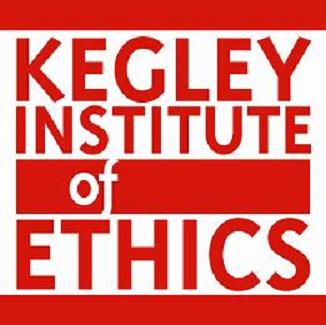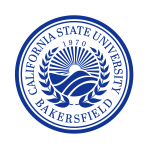4 Questions With KIE Faculty – Dr. Rhonda Dugan
Contributed by KIE Media Intern, Angela Beardsley
 Interview with Dr. Rhonda Dugan, KIE Affiliate Faculty and Associate Professor of Sociology, CSUB. See Dr. Dugan’s bio here.
Interview with Dr. Rhonda Dugan, KIE Affiliate Faculty and Associate Professor of Sociology, CSUB. See Dr. Dugan’s bio here.
- How does ethics relate to your research, teaching, and/or public engagement?
Ethics in teaching and research are interrelated for me as I teach courses that include an introductory research methods class and qualitative research methods. A big component of doing research, particularly when working with human subjects, is making sure all the ethical procedures are in place, such as meeting federal guidelines and complying with the Institutional Review Board (IRB) on campus. I also teach a junior level research ethics and diversity course which centers on how to incorporate ethical research practices while being inclusive of diverse groups who may be considered “vulnerable” by federal research standards. It is important not to exploit these different groups when doing sociological research in our quest to find out about them. Finding this ethical balance is an important component of my teaching.
My affiliation with the Kegley Institute of Ethics has encouraged public engagement. Not long ago I served as a panelist in the panel discussion, “After Trayvon, What?: Enhancing Relations Between Law Enforcement and the Public”, hosted by the Kegley Institute of Ethics. This provided an opportunity to openly discuss ethical issues in the community with key community leaders such as the chief of police at the time.
- What is a current project you are working on that excites you? (Broadly construed).
Currently I am finishing up one project and starting on another. The one I am finishing is a collaboration with my colleague, Professor Dahna Rasmussen (Sociology), where we interviewed CSUB college students in order to determine their perceptions of, use, and interpretation of both versions of the N-word. We noticed there was a generational gap in usage and wanted to learn more about college students’ views on who should say it, who should not say it, and what are the differences that students perceive between the “-er version” and the more colloquial “-a version”. This project largely focused on the relationship between the emergent themes of “public/private use of [the ‘-a version’]” and what we call “self-regulation of use” – how students manage where, when, why, how, and with whom they say the “-a version”. We interviewed students of various backgrounds, racially, ethnically, and age-wise, in order to be inclusive in our study.
The second project is just in its infancy stage and will examine Latino/a and Black college student views on contemporary issues of race. My colleague on this project is Dr. Marisa Sanchez (Sociology). We will be conducting in-depth interviews of college-educated Black and Latinx millennials and post-Millennials in the San Joaquin Valley to explore how they discuss and identify various forms of racism in the U.S. Our study will contribute to the existing body of research about millennial views on race by including a detailed, contemporary analysis of Black and Latinx views of racism, as the racial climate of the U.S. has changed dramatically in the past ten years.
- If you could have dinner with anyone from the past or present, who would it be and why?
This is the hardest question for me because I have a list of people that I have wanted to meet, but I finally narrowed down to two people. One is Negro League/Major League baseball player Satchel Paige. I’ve always been fascinated with the Negro Leagues, due to my scholarly interest in race and my love of baseball which I “inherited” from my dad. I am especially fascinated with Paige’s experience and longevity in his career of playing baseball. However, if I can only have dinner with only one person, it would have to be Harriet Tubman. Her life in the context of slavery and the Civil War is just so hard for me to imagine. I would want to ask her about the everyday strategies she used to get people through the Underground Railroad, particularly from the perspective of a woman and activist at that time in history. She was phenomenal and faced incredible adversity, especially in a slavery context, and it would be incredibly humbling to be in her presence discussing her bravery and the physical and emotional risks she took.
- What is an important project or topic you would like KIE to prioritize over the next three years?
The Kegley Institute of Ethics is already prioritizing many great topics, including immigration, mass incarceration, and other contemporary national and global social justice issues. Related to the law and social justice, I would like to see a discussion on the future of non-violent offenders, particularly those who have served time for minor drug offences pertaining to marijuana. With the push to legalize marijuana and the related economic opportunities created as a result of legalization, I feel there is an ethical component in considering whether or not to include non-violent drug offenders in business ventures from which non-offenders already economically profit. Since ex-offenders are likely to struggle economically after serving time, is it possible—and, in essence, the “right thing to do”–for societal institutions to provide economic opportunities for non-violent offenders now that the use and sale of marijuana has been decriminalized for profit?





